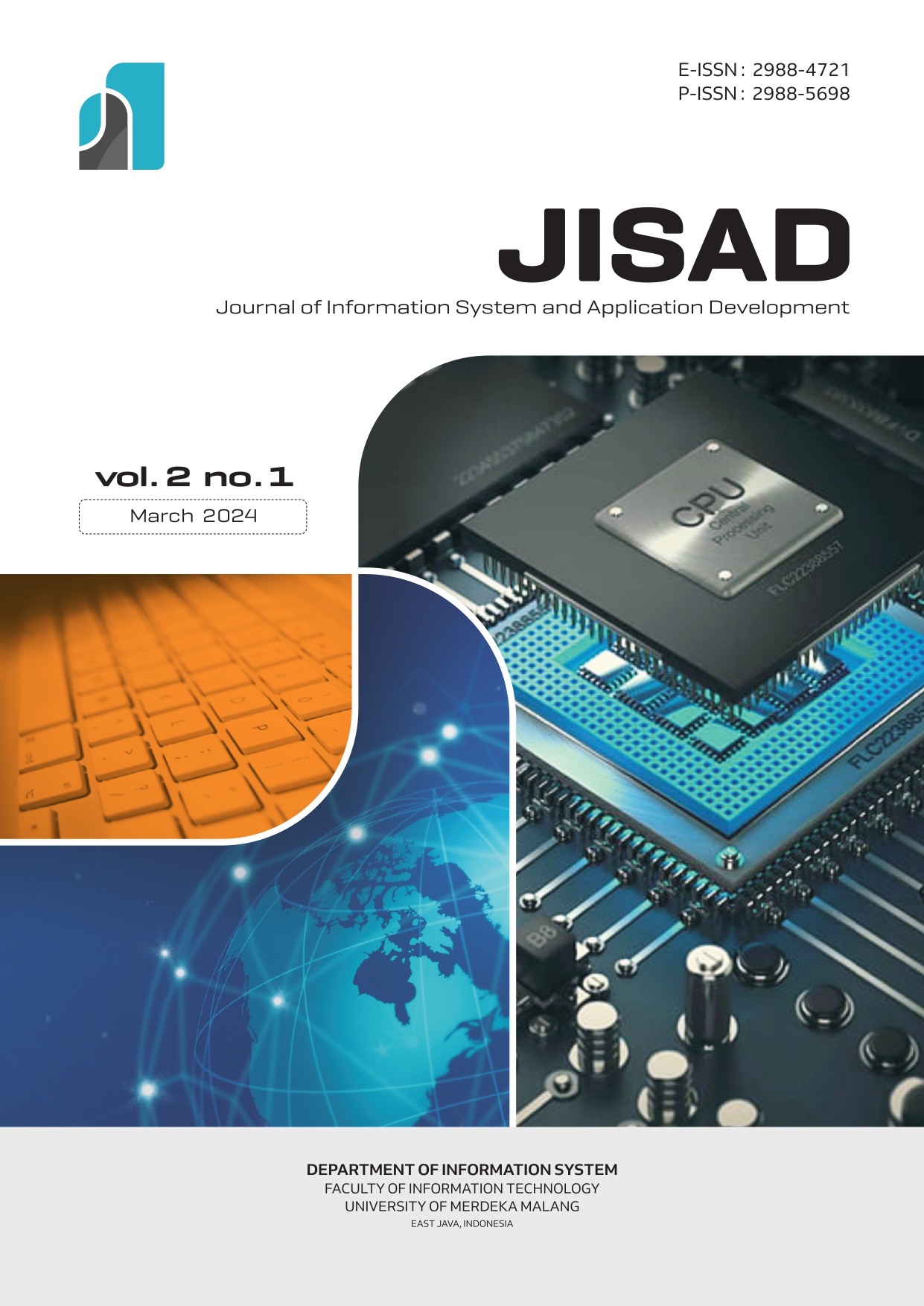Analisis sentimen kebijakan masuk sekolah pukul lima pagi menggunakan algoritma Naïve Bayes
DOI:
https://doi.org/10.26905/jisad.v2i1.10935Keywords:
sentiment analysis, policy, Naïve Bayes, TwitterAbstract
Education is very important to build a quality young generation that can advance the nation. To improve the quality of education, the government of East Nusa Tenggara implemented a five am school entry policy. However, this policy has caused pros and cons in the community. People are becoming more active expressing their opinions through social media. Criticism of this policy is reflected in comments appearing on social media, especially on Twitter. Therefore, it's important to conduct sentiment analysis to know how many positive and negative responses to this policy. In this research, sentiment analysis was carried out on search results for tweets with the keyword “sekolah jam 5 di NTT” in the time period from February to March 2023. A total of 777 tweets were obtained with 24 positive sentiments and 753 tweets with negative sentiments. The data was then processed and analyzed using the Naïve Bayes algorithmThis research obtained accuracy results of 97% with a negative sentiment precision value of 98% and a positive sentiment precision value of 50%. In addition, the recall and f1-score values for negative sentiment are greater than positive sentiment, indicating that more people do not agree with the policy.
Downloads
References
[1] M. I. Fikri, T. S. Sabrila, and Y. Azhar, “Perbandingan Metode Naïve Bayes dan Support Vector Machine pada Analisis Sentimen Twitter,” SMATIKA J., vol. 10, no. 2, pp. 71–76, 2020, doi: 10.32664/smatika.v10i02.455.
[2] D. Aditya, A. Mubarok, M. Kom, and S. Susanti, “Analisis Sentimen Pada Media Sosial Twitter Menggunakan Metode Naïve Bayes Classifier (Studi Kasus: Komentar Publik Kepada Tri Indonesia),” J. Inform., vol. 6, no. 1, pp. 1–8, 2019.
[3] C. R. Fink, D. S. Chou, J. J. Kopecky, and A. J. Llorens, “Coarse- and Fine-Grained Sentiment Analysis of Social Media Text,” Johns Hopkins Apl Tech. Dig., vol. 30, no. 1, pp. 22–30, 2011.
[4] S. G. Kaparang, D. R. Kaparang, and V. P. Rantung, “Analisis Sentimen New Normal Pada Masa Covid-19 Menggunakan Algoritma Naive Bayes Classifier,” Jointer - J. Inform. Eng., vol. 2, no. 1, pp. 16–23, 2021, doi: 10.53682/jointer.v2i01.33.
[5] E. M. A. Ernamia and A. Herliana, “Analisis Sentimen Kuliah Daring Dengan Algoritma Naïve Bayes, K-Nn Dan Decision Tree,” J. Responsif Ris. Sains Dan Inform., vol. 4, no. 1, pp. 70–80, 2022, doi: 10.51977/jti.v4i1.614.
[6] M. Abdullah, Metode penelitian kuantitatif. Yogyakarta: Aswaja Pressindo, 2015.
[7] S. G. Pikir Claudia, “Analisis Sentimen Kuliah Online selama pandemi Covid-19 Menggunakan Algoritma Naive Bayes,” Skripsi, Fakultas Sains dan Teknologi, Universitas Jambi, 2021. [Online]. Available: https://repository.unja.ac.id/24353/
[8] Hardani et al., Buku Metode Penelitian Kualitatif dan Kuantitatif. Yogyakarta: CV. Pustaka Ilmu Grup, 2020.
[9] E. Haddi, X. Liu, and Y. Shi, “The Role of Text Pre-processing in Sentiment Analysis,” Procedia Comput. Sci., vol. 17, pp. 26–32, 2013, doi: 10.1016/j.procs.2013.05.005.
[10] C. C. Aggarwal, Data Mining: The Textbook. New York: Springer International Publishing Switzerland, 2015.
[11] B. Bustami, “Penerapan Algoritma Naive Bayes Untuk Mengklasifikasi Data Nasabah Asuransi,” TECHSI-J. Tek. Inform., vol. 5, no. 2, pp. 128–146, 2013, doi: https://doi.org/10.29103/techsi.v5i2.154.
[12] Muljono, D. P. Artanti, A. Syukur, A. Prihandono, and D. R. I. M. Setiadi, “Analisa Sentimen Untuk Penilaian Pelayanan Situs Belanja Online Menggunakan Algoritma Naïve Bayes,” in Konferensi Nasional Sistem Informasi (KNSI), pp. 165–170, 2018.
[13] J. Han, M. Kamber, and J. Pei, Data Mining Concept and Techniques Third Edition. Waltham: Morgan Kaufmann Publishers, 2012.
[14] M. C. Kirana, N. P. Perkasa, M. Zainuddin, L. Maidel, “Visualisasi Kualitas Penyebaran Informasi Gempa Bumi di Indonesia Menggunakan Twitter,” J. Appl. Inform. Comput., vol. 3, no. 1, pp. 23–32, 2019, doi: https://doi.org/10.30871/jaic.v0i0.1246.
[15] D. Duei Putri, G. F. Nama, and W. E. Sulistiono, “Analisis Sentimen Kinerja Dewan Perwakilan Rakyat (DPR) Pada Twitter Menggunakan Metode Naive Bayes Classifier,” J. Inform. Dan Tek. Elektro Terap., vol. 10, no. 1, pp. 34–40, 2022, doi: 10.23960/jitet.v10i1.2262.
Downloads
Published
Issue
Section
License
Copyright (c) 2024 Journal of Information System and Application Development

This work is licensed under a Creative Commons Attribution-ShareAlike 4.0 International License.
Authors who publish in this journal agree to the following terms:
(1) Copyright of the published articles will be transferred to the journal as the publisher of the manuscripts. Therefore, the author confirms that the journal has managed the copyright.
(2) Publisher of JISAD: Journal of Information System and Application Development is the University of Merdeka Malang.
(3) The copyright follows Creative Commons Attribution ShareAlike License (CC BY SA): This license allows to Share - copy and redistribute the material in any medium or format, Adapt - remix, transform, and build upon the material, for any purpose, even commercially.






